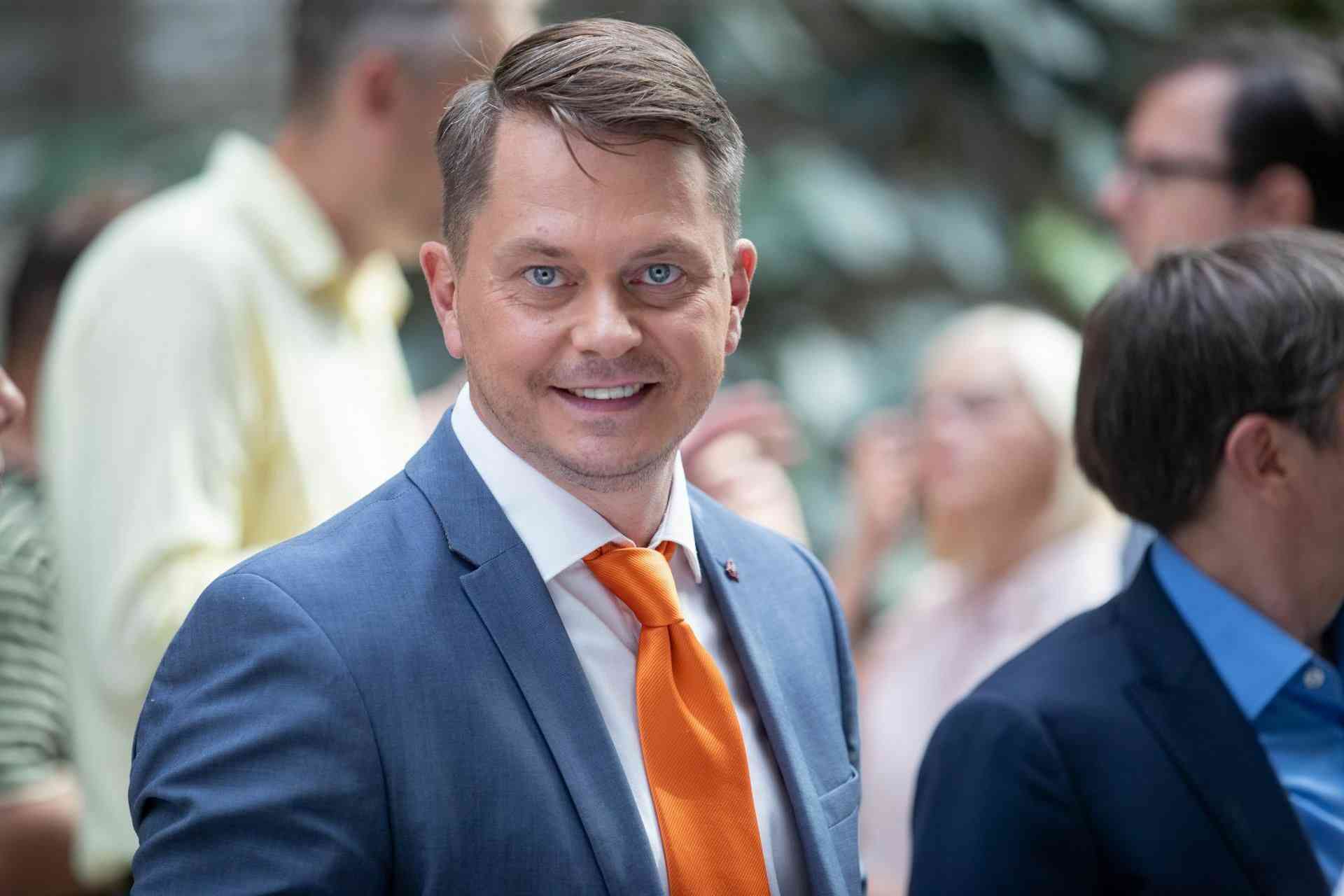Vox Populi

Õnne Pillak
Chair of the Reform Party group in the Riigikogu
The current coalition has agreed that after the security tax decision, the tax festival will end. And I think this is the right direction because businesses and people need tax peace. New taxes and tax increases do not make anyone happy. Generally, they do not facilitate economic growth either. Instead of inventing new taxes, in the coming years we need to focus on making the Estonian economy more competitive and fostering economic growth.
I understand that different worldviews do have different approaches. The Social Democrats have always talked about increasing the tax burden so that there is more to hand out. If they have a desire to make new taxes, then in a couple of years there will be a good opportunity to ask voters for a mandate for their ideas in the elections. In the meantime, let's keep the tax peace and let the economy grow.

Piret Hartman
Minister of regional affairs and agriculture (Social Democratic Party)
Our aim is to increase the capacity of municipalities so that they can better see to the needs of their people. Local taxes are one solution. The government definitely is not about to introduce a new uniform national tax that applies to everyone. On the basis of the suggestions received from municipalities, a bill will be prepared to offer a choice of options that municipalities can, but do not necessarily have to, implement.
When it comes to additional local taxes, it is important that the purpose for which they are levied is justified and understandable, and that they are negotiated with the local community. The appropriateness of an individual tax depends significantly on the specific municipality and its concerns. If we look at the proposals received by the ministry, they vary widely. Broadly speaking, the taxes under consideration can be divided into three categories: a visitor fee, such as for areas with high summer tourist traffic; a toleration payment, for regions related to resource extraction or energy production; and a development fee for rapidly growing areas where local government revenues are not keeping pace with expenses. Currently, an analysis of these proposals is underway to determine which ones can be shortlisted for the pipeline.

Triin Varek
Mayor of Rakvere (Isamaa)
The state should treat municipalities as its partners. Unfortunately, we are quite far from it as things stand. The state first makes decisions that shift responsibility off its own shoulders, such as the so-called Robin Hood law that reduced the revenue base of many municipalities. Or, as is currently being done with the education agreement with teachers: municipalities are being encouraged to sign it, but no funding is allocated for its implementation. And then the Ministry of Regional Affairs turns to us and asks: Now you tell us what kind of taxes you want in order to get more money.
Each municipality must put the well-being of its residents first. Unfortunately, over the past year and a half, people's livelihoods have suffered significantly as a result of tax increases and the accompanying inflation and continuing recession. Next year will not be any brighter: prices will continue to rise, there will be a car tax, which will hit rural areas hardest, the state will cut services and subsidies that have been taken for granted so far, and in 2026 there will be a further increase in VAT and income tax, as well as a corporate income tax, which will ultimately be paid by the consumer.
In a situation where people are being skinned by the government, municipalities cannot allow additional burdens to be put on their people. We are not planning to introduce any local tax in Rakvere, on the contrary, we will try to make life easier for our residents during difficult times.

Evelyn Sepp
Co-leader of the Greens party
When the state imposes obligations on municipalities, it must also provide funding to support these responsibilities. This is the only viable approach. It is a flawed and irresponsible notion to think that if the state neglects its obligations, the search for additional funding can be left to municipalities in the form of «local taxes». It also demonstrates a complete lack of understanding of the big picture and the effects.
Before anyone starts talking about local taxes, it is first necessary to comply with the law currently in force. Then begin a thorough review of the tasks of the state and local governments and an analysis of the relationship between them, and only then address the issues of tax autonomy and local taxes as a tool. The goal must be an agile and vibrant Estonia that we can sustain.
Today's flurry of activity simply boils down to organizing the next tax festival, which will not solve the current problems but will exacerbate them. As with the car tax – at the wrong time, in the wrong place, for the wrong reasons.

Andres Kaarmann
Deputy mayor of the municipality of Saue, board member of The Right
Local taxes cannot cover the chronic underfunding of the tasks of the state. The Right is very skeptical and cautious about raising any taxes, also those collected temporarily or for a specific purpose. The «security tax,» of which only 27 percent will be spent on security, should be a warning example for everyone. The remaining part of the «security tax» will essentially go towards the current government's inability to downsize the state apparatus and stop living beyond its means.
The financial autonomy of municipalities is very important for The Right. Municipalities must be substantive decision-makers and the ones responsible for matters of local life, not just implementers of the will of the government. The possibility of imposing local taxes is not wrong as an idea, but it must be viewed as a whole, in combination with borrowing restrictions and expenditure caps, and having the obligations of the state covered by public money. Today, unfortunately, it seems that municipalities are being pressured to introduce new local taxes to cover the underfunding of the tasks of the state from the state budget. However, only few municipalities have the capacity to collect local taxes in considerable amounts. So The Right definitely cannot agree.

Ando Kiviberg
MP and board member of Estonia 200
At a time when the state and society as a whole are already under stress due to the very difficult security situation and the state budget deficit, it is inappropriate to launch a new tax debate. Every thing in its own time.
It is true that most local governments in Estonia lack the resources to fulfill their tasks and obligations. It is also true that despite the principle set out in the Constitution of the Republic of Estonia that local governments are autonomous (including financially), they actually depend excessively on the whims of the state. An example of this: it is known that revenue from the personal income tax paid by the residents of a city or rural municipality makes up the largest part of municipal budgets. In 2009, the government unilaterally reduced this income tax portion «to improve the fiscal position,» leaving many local governments in an even more difficult situation than they already were in due to the economic crisis. Municipalities had no choice but to bow their heads and comply.
However, I think that the financial independence of municipalities is very important. This is also enshrined in our Constitution. The right and appropriate moment for this debate is the period of the 2027 Riigikogu election campaign. It is realistic to carry out the corresponding tax reform when the period of the emergency security tax is over. Then society will also be ready.
My proposals would be as follows: to reduce VAT back to 20 percent and to allow municipalities to impose a two percent sales tax. However, one immediate action could be to share the income tax on dividends with municipalities based on the same proportional principle that is used for personal income tax.

Mihhail Kõlvart
Chairman of the Center Party
Prime Minister Kristen Michal is not speaking the truth when he claims that the tax festival will end. In reality, the current coalition is displaying extraordinary arrogance by imposing additional obligations on municipalities without providing the necessary funding. As a result, cities and rural municipalities are left in a situation where they have no choice but to raise local taxes or establish new ones. We have a similar negative example at hand with the care reform.
The expectation of the Reform Party government is that local governments will raise, for example, land tax to bridge the shortfall. Apart from the additional financial burden on each homeowner, there are also more systemic problems with this. Increases in land tax on agricultural and forest land could overwhelm owners and make them sell their land to foreign investors. This is certainly not in the long-term interests of our state.
Six years ago, the Center Party proposed the idea of introducing a tourism tax in Tallinn, with the revenue going to the municipality's budget. It didn't materialize then and it would be too late to do it now, as it would negatively affect the ability of accommodation establishments to stay afloat. While the system of local taxes of cities and municipalities is part of the autonomy of local governments, the state must not pressure municipalities with its economic policy to impose new taxes or raise existing ones.
The current government has already repeatedly increased the tax burden on the Estonian people and is now giving a signal that local governments could do the same. At the same time, however, the coalition itself is unable to agree on the necessary cuts and restructuring. The result is an opaque state budget which makes it impossible to get a proper idea of what taxpayers' money is used for.






